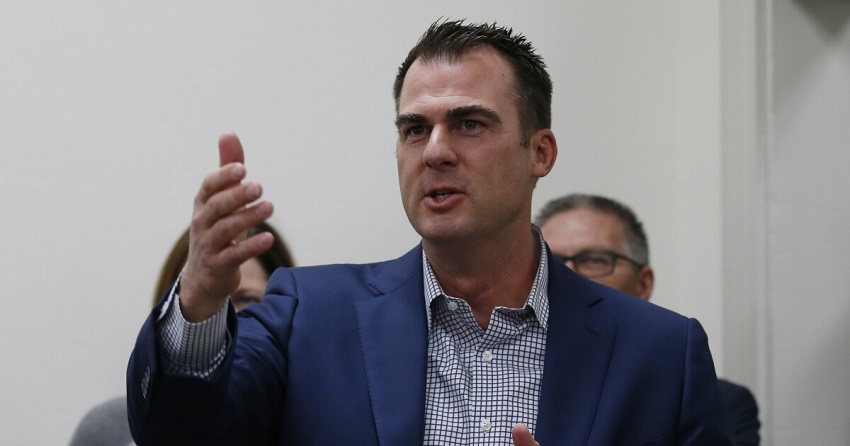Enid, OK – Oklahoma Governor Kevin Stitt made waves Wednesday when he suggested that the state should eliminate its Department of Forestry, following the aftermath of several deadly wildfires. Stitt argued that cutting the department would save taxpayers an estimated $75 million, a claim that has sparked strong reactions from various fire departments and officials.
“Why do we even have a Department of Forestry? Let’s get rid of the whole thing. That would save $75 million for the taxpayers,” Stitt remarked during a press conference. His statement follows a recent decision to fire Mark Goeller, the state’s former State Forester, who had been with the department for over four decades. The firing, announced just a week earlier, has drawn significant criticism, with many fire crews and departments voicing dissent.
During Wednesday’s press briefing, Stitt was asked whether he had any concrete evidence to support his claim that Goeller had delayed or failed to use firefighting resources during critical moments of the fires. The governor, however, admitted he had no proof at hand, stating, “I’ll have to get back to you on that.”
Goeller, who was dismissed from his position, has strongly rejected the allegations. In a Facebook post, he denied the accusations, stating, “I have been falsely accused of not performing the duties necessary to protect life and property promptly. The Agency to which I dedicated over 40 years of my life was said to have performed poorly.” His response has resonated with many in the firefighting community, casting doubt on the governor’s assertions.
The controversy deepened as Stitt expressed his desire to scale back funding for the Department of Agriculture, Food, and Forestry. Despite the department receiving $72 million in appropriations last year, it has requested nearly 40% less funding for the upcoming year, a decision that Secretary of Agriculture Blayne Arthur acknowledged could further strain firefighting efforts. Arthur had previously explained that securing adequate funding for firefighting resources is an ongoing challenge, making the proposed budget cuts particularly troubling.
Governor Stitt’s comments did not end there. In addition to questioning the efficacy of the Department of Forestry, he vetoed Senate Bill 453, a measure designed to recruit and retain volunteer firefighters, a move that has drawn concern from emergency services advocates. Stitt suggested that the state’s bureaucracy was hindering transparency and accountability, stating, “We still haven’t been able to figure out where [firefighting] assets were during that time. They were there in Stillwater asking for more resources.”
As the debate over the future of Oklahoma’s firefighting resources continues to unfold, questions about accountability, funding, and the effectiveness of the state’s emergency response efforts remain at the forefront of the conversation. Critics argue that the elimination of the Department of Forestry could have serious long-term consequences, potentially leaving the state ill-prepared for future fire seasons.
The situation in Oklahoma is evolving rapidly, with many fire departments, political leaders, and citizens closely watching how Governor Stitt’s proposals will impact the state’s ability to manage wildfires and other emergencies in the future.

